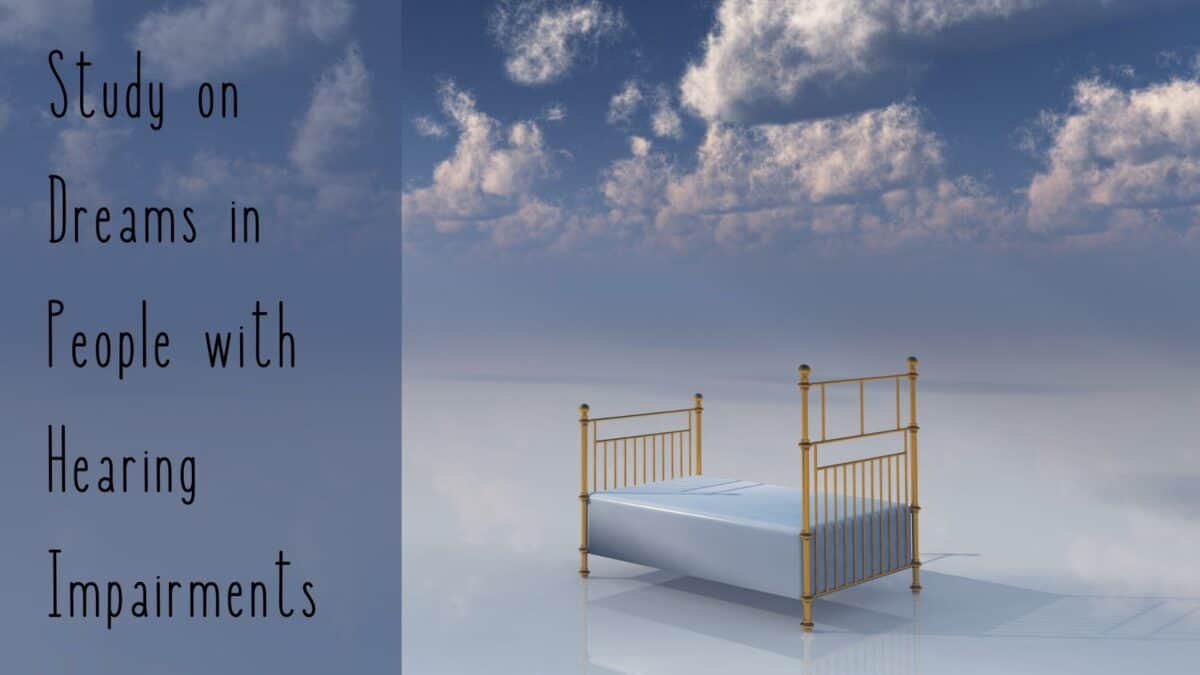What did you dream about last night? You might not remember what you dreamt at all, or you may have had a realistic dream where you almost couldn’t tell if what was happening was real or not. People dream about anything and everything. Dreams can be mundane or profound. They can also include a diversity of emotions, sensations, feelings, and sounds. One new study explored how people with hearing loss dream.
Do Visual or Auditory Impairments Change Dreams?
Dreams are fascinating. Each person experiences dreams in a unique way, and you’ll never have the exact same dream as someone else. Have you ever wondered if your dreams would be different if you had a visual or hearing impairment? For example, if you were born blind, would you have visual dreams? Or if you were colorblind, would you dream in more colors than you can see? And if you’re born with hearing loss, would your dreams have sound?
Do People with Hearing Impairments Experience Dreams Differently?
A recent study took a closer look at how hearing loss may impact dreams. The study, called Waking and Sleeping, looked at how people with hearing loss experienced their dreams. At the end of their study, they concluded that people with hearing impairments hear sounds in their dreams. The 14 participants who had hearing loss experienced sound in dreams in the same way as participants without hearing loss.
But the research doesn’t stop there. A larger study with 430 participants did discover that people with hearing loss dream a bit differently. 86 participants had hearing loss, and they reported hearing during their dreams. But they also reported experiencing a range of other emotions and sensations, including fear, pain, anger, hope, surprise, smell, pain, and temperature. The participants with hearing loss also experienced lucid dreaming quite often.
The 344 participants who had normal hearing also reported having these sensations and emotions during dreams, but they reported hearing a lot more frequently than the participants with hearing loss. They also had less vivid dreams and had a harder time recalling some of their dreams.
Do People with Hearing Impairments Show Sensory Compensation?
People with hearing loss reported having a lot more vivid dreams with a wider range of emotions and sensations. Researchers think that this could be a sign of sensory compensation. Hearing loss weakens hearing skills, but many people report that other senses get stronger. For example, they may notice that their vision is sharper or they’re more sensitive to smells. Sensory compensation is an adaptive response, helping keep you safe and fill in any gaps in your hearing abilities.
Having more vivid dreams may show that people with hearing impairments are experiencing sensory compensation during the day and the night.
Untreated Hearing Loss Isn’t a Pleasant Dream
Sensory compensation is adaptive since it can help you stay alert to what’s happening in your environment. But it can’t make up for hearing loss. Untreated hearing loss can decrease your quality of life and make it hard for you to enjoy conversations with loved ones. You may notice a heightened sense of smell, but that won’t help you make sense of what’s being said. you may feel frustrated and isolated from loved ones. You may withdraw from conversations or even stop meeting with friends. You may feel more stressed and anxious, or even feel lonely and depressed.
How Hearing Aids Can Help
If you have hearing loss, it’s time to book a hearing test. Hearing aids can help you hear all the sounds around you, so you won’t need to rely on sensory compensation. Instead, hearing aids will help you follow conversations, hear soft sounds, and maybe even help your brain dream with sound.
Our hearing aids come in a range of styles to suit every hearing need, lifestyle, and budget. Find the programs and settings that work for you, then add on extra features to help you hear in a whole new way. During the hearing test, we take the time to really get to know you and learn about your hearing needs. We’ll help you find the hearing aids that fit easily into your life and will make your waking hours better than your dreams. Contact us today to book an appointment.


